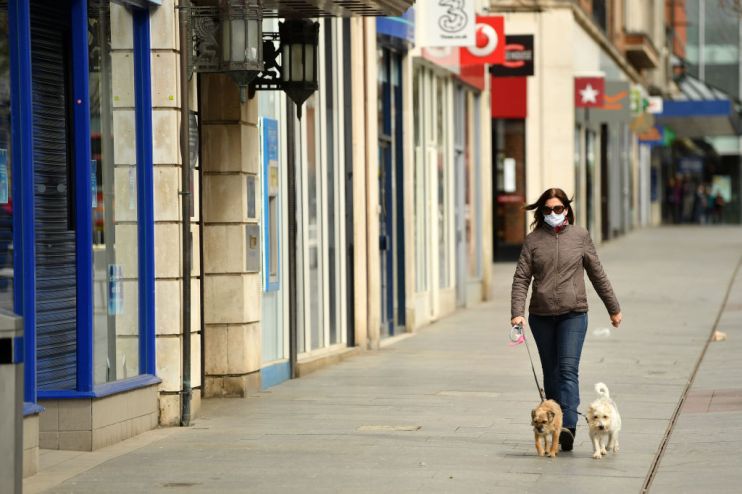Retailers get ready to reopen – but shoppers may be too scared to visit

Shops across the country may be preparing to finally reopen their doors next week, but fears are growing that the British public will be too anxious to actually visit them after spending months under coronavirus lockdown.
Those concerns have today been laid bare in a survey of more than 1,000 consumers, which suggested many people will not be quick to return to their old shopping habits.
Four in five people said they would be uncomfortable trying on clothes in a store, while only a quarter said they feel comfortable going out to buy groceries, despite it being a necessity.
The research, carried out by EY, suggested that 45 per cent of UK consumers believe the way they shop over the next one to two years will change, with 64 per cent saying they expect to go shopping less frequently, but will spend more when they do.
Similarly, more than half said they will be more aware of hygiene and sanitation when shopping in person.
Silvia Rindone, consumer product and retail partner at EY, said: “UK consumer companies will need to be aware of consumers’ heightened concerns and make every effort to mitigate anxiety if they are to prosper in this new market.
“Adaptability has always been crucial for any consumer-facing business, but it will be more important than ever for companies if they are to emerge stronger from this pandemic and serve understandably anxious consumers.”
The report suggested that consumers are gearing themselves up to live more risk-averse lives, and made particularly grim reading for restaurant and pub owners.
More than two-thirds of respondents said they expect it to take months or years before they will return to a restaurant, and nearly three-quarters said the same about bars and pubs.
Companies ‘must make consumers feel safe’
Rindone added that firms should think about “reinventing their customer experience” to reassure shoppers that they have minimised any risk to their health.
“They must go the extra mile to help them feel safe and entice them back into a communal space,” she said.
“The browsing experience, for example, will change. With social distancing, a person’s presence in-store could prevent someone else from entering, lessening browsing time, and making the shopping experience far more transactional.
Julie Carlyle, EY head of retail in the UK and Ireland, added: “As consumer companies look to more permanently de-risk the consumer experience and step into recovery, investment in digital capabilities will be critical. We expect to see greater use of the smartphone as an interface generally.
“Why touch a public ATM screen, for example, when a code number typed into your phone could confirm your identity? Voice commands and face ID will be used more widely. Cashier-free stores will become more appealing. This is just the start.”